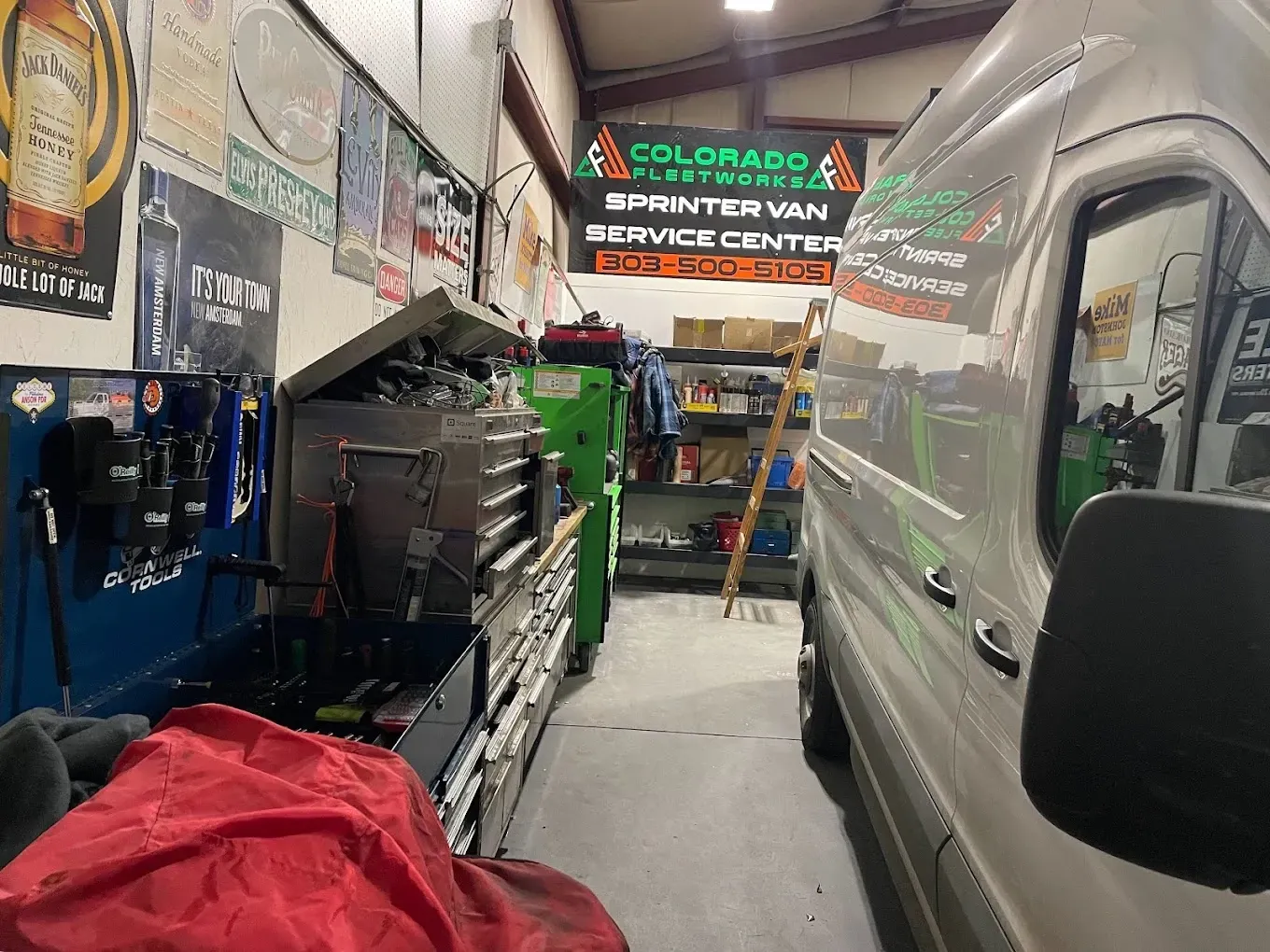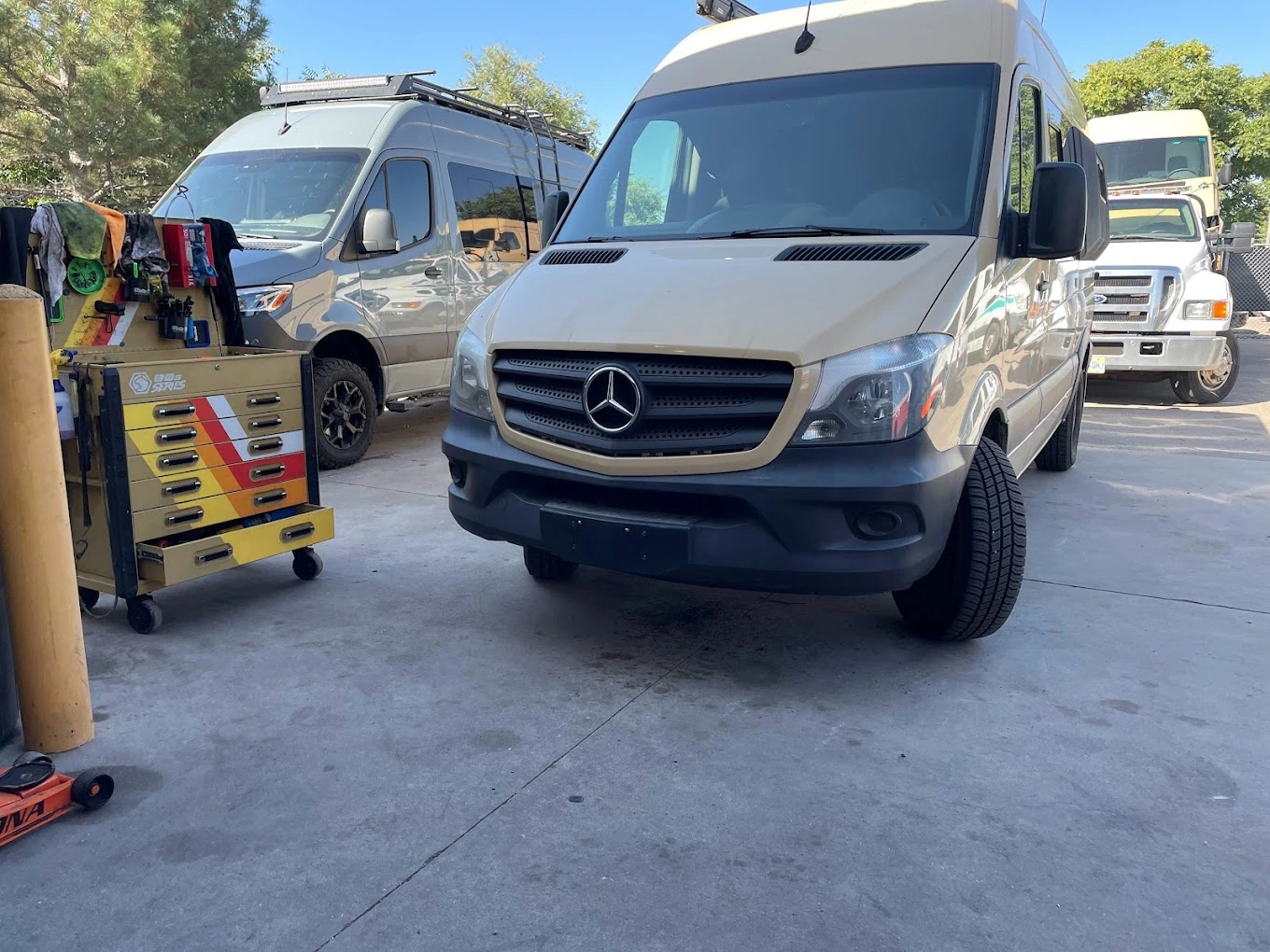Fleet Truck Repair Red Flags: How to Spot Them?

How to Identify Warning Signs Before They Become Costly Breakdowns

Fleet truck repair often determines whether your business runs smoothly or spends half the week chasing delays, breakdowns, and unexpected expenses. That’s why spotting issues early matters more than most fleet owners realize. Even small warning signs can hint at deeper mechanical problems waiting to explode into a costly failure. Below are seven red flags you should never ignore—plus how to prevent them and why professional diagnostics can save thousands over the life of a fleet.
Key Takeaways
- Spotting fleet truck repair red flags early helps prevent costly breakdowns and downtime.
- Warning signs include unusual noises, fluid leaks, inconsistent performance, and dashboard alerts.
- Poor maintenance records or lack of transparency from a repair shop often indicate unreliable service.
- Regular inspections and prompt repairs protect your fleet’s reliability and safety.
- Working with a trusted mechanic ensures long-term fleet efficiency and lower repair expenses.
Schedule Fleet Service
What Early Warning Signs Suggest a Fleet Truck Is Headed for Trouble?
Fleet trucks usually give subtle hints long before a major breakdown occurs. The challenge is recognizing which small issue deserves immediate attention.
Most Common Early Warning Clues
- A sudden drop in fuel efficiency
- Rough idling or shaky startup
- Unusual rattling or knocking during acceleration
- Delayed shifting or gear hesitation
- Intermittent check engine light
- Electrical glitches like dimming interior lights
Why These Signs Matter
Even minor symptoms often point to developing problems in the engine, transmission, or fuel system. A truck rarely “fixes itself,” so early detection is one of the strongest defenses against downtime and expensive repairs.
Why Do Strange Noises Signal a Serious Fleet Truck Repair Issue?
Noises are one of the most ignored—but loudest—warnings a fleet truck gives. Different sounds often reveal very specific issues.
What Specific Noises Mean
Grinding
Usually points to worn brake pads or a failing differential.
Knocking
Often linked to low oil pressure, worn bearings, or fuel problems.
High-Pitched Whining
It can indicate a failing alternator, transmission issues, or belt problems.
Hissing
Many times related to vacuum leaks, coolant leaks, or tire pressure loss.
Ignoring unusual noises almost always leads to a more expensive repair down the line.
Which Performance Changes Should Immediately Trigger an Inspection?
A fleet truck that suddenly drives “different” is telling you something important. Performance changes rarely happen for no reason.
Key Performance Red Flags
- Loss of power or slow acceleration
- Jerking motions when shifting
- Strong vibrations at certain speeds
- Reduced towing capability
- Hard starting on cold mornings
- Unusual exhaust smoke (black, blue, or white)
What These Performance Issues Indicate
- Fuel injector trouble
- Transmission slipping
- Turbocharger concerns (diesel trucks especially)
- Electrical/ignition problems
- Blocked filters or airflow restrictions
This is where the middle placement of your keyword fits naturally:
Fleet owners often underestimate how fleet truck repair becomes more expensive when performance symptoms are ignored.
How Can Fluid Leaks Reveal Hidden Mechanical Problems?
One of the most visible red flags is fluid leaking—yet many fleets dismiss it as “normal.” It isn’t.
Types of Leaks You Should Watch For
- Dark brown or black: engine oil
- Bright red: transmission fluid
- Green or orange: coolant
- Clear but greasy: brake fluid
- Light brown: power steering fluid
Dangers of Ignoring Leaks
- Overheating and engine seizure
- Brake failure from fluid loss
- Transmission breakdown from low fluid pressure
- Steering system damage
Leaks can start small but quickly escalate into major failures that sideline trucks for days.
Why Choose Colorado Fleetworks for Diagnosing Red Flags Early?
When red flags show up, quick and accurate diagnosis is everything. Colorado Fleetworks specializes in diagnosing fleet issues before they become expensive emergencies.
What Makes Their Diagnostic Process Different
- Advanced scanning tools for diesel and gas trucks
- Technicians trained specifically on fleet platforms
- Fast turnaround for commercial vehicles
- Accurate identification of root causes—not guesses
- Honest repair recommendations based on actual fleet needs
Early detection means the difference between a minor fix and full system failure.
Need Immediate Repair? Click Here
Why Choose Colorado Fleetworks for Preventive Fleet Maintenance?
Many red flags appear because preventive maintenance wasn’t handled on schedule. Colorado Fleetworks builds maintenance plans tailored for business fleets—not generic personal vehicles.
Benefits of Their Preventive Programs
- Longer engine and transmission life
- Improved fuel efficiency
- Fewer on-road failures
- Better compliance for commercial operations
- Predictable maintenance scheduling to reduce downtime
They focus on prevention so your fleet stays productive rather than stuck waiting for repairs.
Why Choose Colorado Fleetworks for Long-Term Fleet Performance?
Red flags don’t just warn about short-term problems—they signal future performance declines. Colorado Fleetworks focuses on long-term reliability to keep your trucks producing revenue.
Their Long-Term Approach Includes
- Regular inspections of high-wear parts
- Tracking mileage patterns for accurate scheduling
- Recommending upgrades to improve reliability
- Transparent communication about upcoming needs
This long-term mindset ensures your business sees fewer surprises and more consistent performance from every fleet vehicle.
Final Thoughts
Fleet truck repair isn’t something you only think about when a truck breaks down. Most major failures start with small red flags—strange noises, odd vibrations, fluid leaks, reduced performance, or warning lights that seem to flicker for no reason. When these signs show up, getting ahead of the problem is the smartest move you can make.
Colorado Fleetworks helps fleet owners stay in front of these issues with expert diagnostics, preventive maintenance, and long-term performance strategies. And when it comes down to it, responding to red flags early is the best way to keep your trucks working, your drivers safe, and your business moving.
And for your final keyword placement: when issues begin to stack up, never wait—get the fleet truck repair your business needs right away so you avoid downtime, protect revenue, and keep every vehicle running strong.
Book a Denver Fleet Inspection
Frequently Asked Questions
1. What are the most common fleet truck repair red flags?
Unusual noises, fluid leaks, rough idling, dashboard warning lights, and a sudden drop in fuel efficiency are some of the biggest warning signs fleet managers should never ignore.
2. Why does my fleet truck keep showing warning lights even after service?
This can indicate incomplete diagnostics, poor-quality repairs, or unresolved underlying issues. It may be time to switch to a more reliable repair provider.
3. How often should fleet trucks be inspected to prevent major repairs?
Most fleets benefit from monthly inspections and thorough quarterly maintenance checks to catch problems early.
4. Is it normal for a truck to leak a small amount of oil?
No—any leak, no matter how small, is a sign of a problem. It could indicate gasket issues, seal failure, or impending engine trouble.
5. What should I do if a repair shop gives vague explanations about needed work?
Lack of transparency is a red flag. Always request detailed diagnostics, photographs, or documentation of the issue before approving repairs.
6. How do I choose a trustworthy fleet truck repair shop?
Look for ASE-certified technicians, strong reviews, clear communication, detailed estimates, and documented repair histories.










